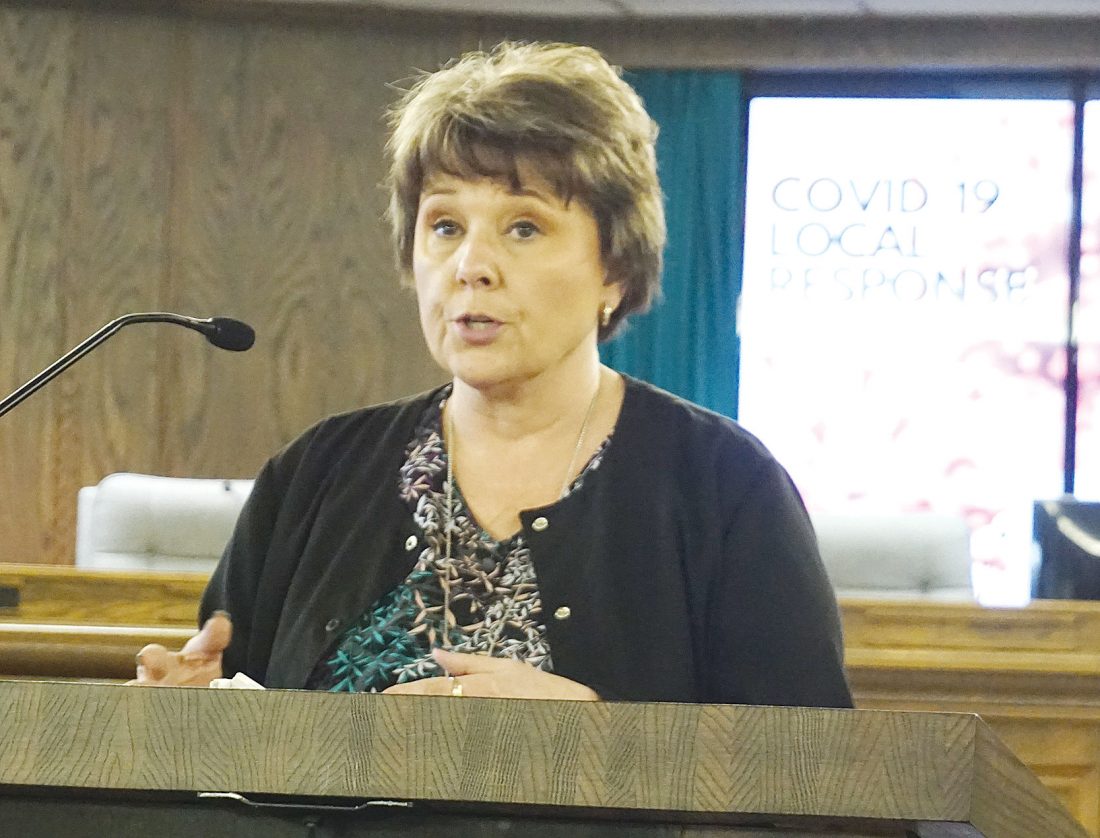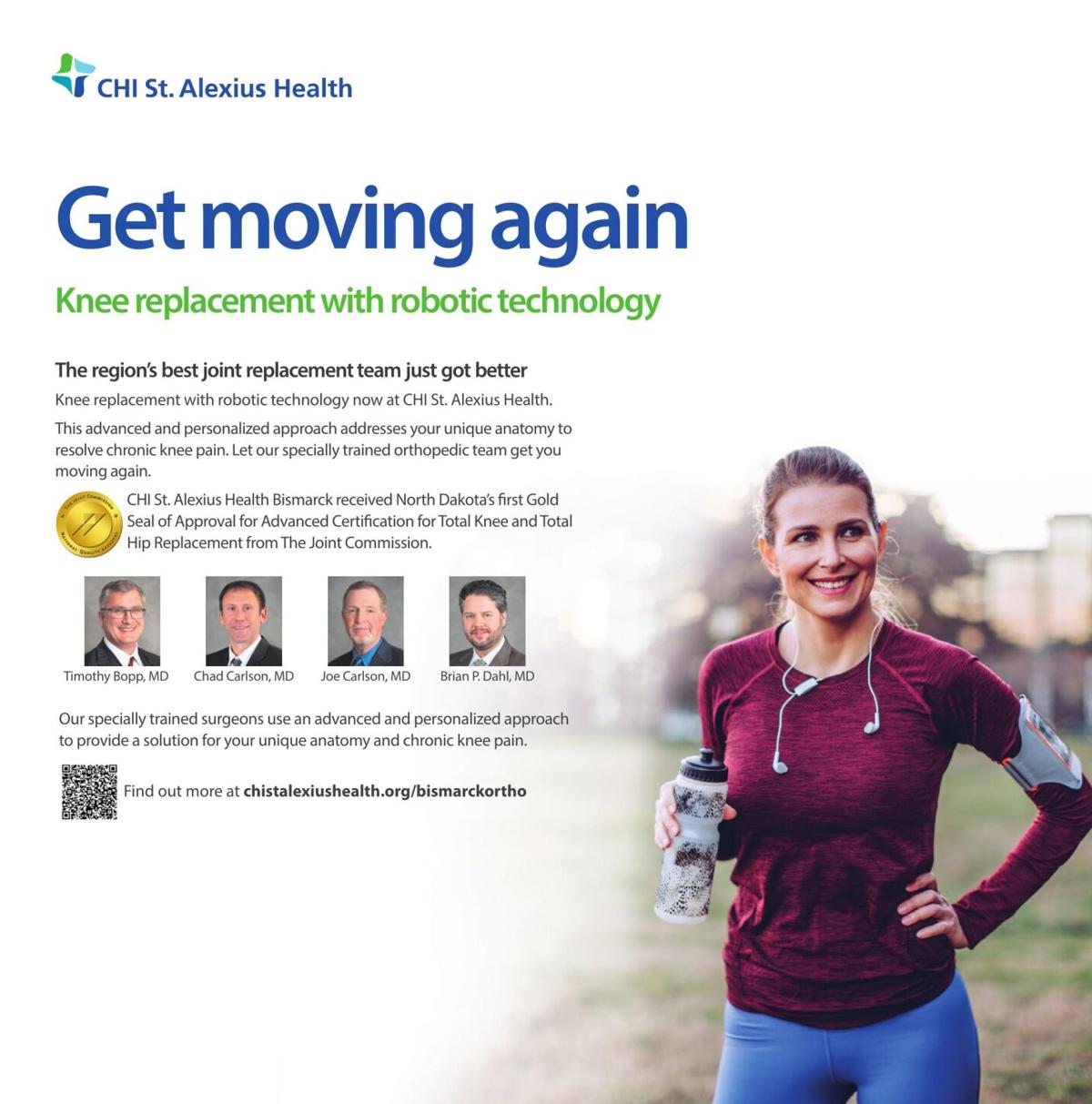COVID-19
First District Health Unit expands vaccine eligibility to essential workers

MINOT, N.D. – COVID-19 vaccinations are opening to anyone receiving a paycheck as the vaccination rate across Ward County climbs past 20% of the population.
“Anybody that receives a paycheck now is considered an essential worker and can receive vaccine,” Lisa Clute, executive director for First District, said at a news conference Wednesday. “Any size paycheck. If you are in college and have a side job, that qualifies.”
Trinity Health is vaccinating essential workers, sorted by vulnerability from its patient lists. This weekend, Trinity expects to pass 10,000 doses administered to patients since the start of the vaccination program, said Dr. Jeffrey Sather, chief of staff. Shipments that had been arriving every three weeks are now coming more quickly, and as supply becomes more available,
Trinity eventually will switch to a program in which people will be able to schedule with their doctors’ offices for vaccination, he said.
Vaccine is available at First District District Health Unit by calling 852-1376, Thrifty White by registering on its websites and Trinity Health by invitation only. Other medical providers within First District also have vaccine and can be called for more information.
Anyone who is homebound can call First District to be placed on a list. Once the number of names on the list reaches a trigger point, First District will send out vaccinators into those homes.
“All of these vaccines are provided with no out-of-pocket costs to anybody,” Clute said. ”
Vaccine is generally provided only to those ages 18 and older. However, Roxanne Vendsel, director of nursing at First District, noted the Pfizer vaccine is authorized for anyone 16 and older. Teens aged 16 and 17 can obtain a vaccine if accompanied by a parent. Families should check with the health unit first to ensure the Pfizer vaccine is the vaccine that is available.
Sather said the risk with the vaccine is tiny, but Trinity’s clinics almost daily see patients who are months out from their COVID-19 infections and still have long-standing issues. There are patients in their 20s with cardiomyopathies that will affect them the rest of their lives, he said.
Dr Casmiar Nwaigwe, health officer at First District and infectious disease specialist at Trinity, explained the mRNA technology used by Pfizer and Moderna has been in development for many years, but this is the first time it has been used in a commercial vaccine. The technology of the Johnson & Johnson vaccine had been used in developing an Ebola vaccine, approved in 2020, and is being used in other vaccines under development.
Vaccines for COVID-19 were able to come to market quickly because of the investments of multiple governments and the ability to begin production in anticipation of future approval, Nwaigwe said. Because COVID-19 was an epidemic, it also was easier to recruit the large number of volunteers for vaccine trials and more quickly get effectiveness results, he said.
“While the whole process was accelerated, the time was compressed but the quality was not compromised,” he said.
Vaccinations are necessary, even among those who have had infections, to curb potentially more dangerous variants and variants that can cause disease in those previously infected, Nwaigwe said.
“Variants develop when the virus is allowed to spread unchecked in the community,” he said.
Some mutations are inconsequential, but others are more contagious or confer a survival advantage, in which antibodies from previous viral infections fail to protect, he said. Some variants also can be more lethal.
Dr. Dawn Mattern, deputy health officer with First District and a sports medicine physician at Trinity, said reduced infection numbers and sports tournaments that have been able to proceed are not reasons to let down the community’s guard.
“It does not mean that the game is over. That means that we need to keep the pressure on, and I need to help encourage as many folks, as many of my athletes, as many of my parents of athletes to consider getting that vaccine, whichever one you can get signed up for first,” she said.
Clute said First District continues to see clusters of new cases, particularly in some schools and businesses.
“I just have to reiterate the importance of following these mitigation strategies. The vaccination rates are not high enough yet, and with the variants being in the community, we need to ensure that people are following these mitigation strategies. It is our primary goal to keep these kids in schools, to keep them in the activities that they enjoy and love, and provide the activities that we all want to attend,” Clute said. “The end is in sight. It is so close we can touch it.”
Testing remains available at First District Health Unit, Minot State University and Dakota College in Bottineau. Trinity Health is screening symptomatic individuals who call 857-7817, while the Minot Fire Department continues to provide drive-up rapid testing.
–
Trinity eases visitor restrictions
Trinity Health has eased hospital visitor restrictions based on COVID-19 status in the community.
New standards allow up to two visitors at a bedside at a time. Visitors are screened upon entry and must be asymptomatic, and masks are mandatory.
Dr. Jeffrey Sather, chief of staff at Trinity, said hospital staff are cautious but optimistic at this point.
“It’s been a heck of a war this past year. Not many months ago, it felt like we were losing that battle,” he said. “We have tools come into place that are starting to allow us to win the war.”
Trinity Hospital last fall had an entire floor and a good portion of another floor dedicated to COVID-19 patients, and an intensive care unit essentially full of COVID-19 patients, with a significant percentage on ventilators, he said. On Wednesday, there were eight patients on the one-wing COVID unit, with two in ICU and one on a ventilator.
“We are still seeing, almost daily, some positive patients show up. So this isn’t totally gone from our community,” Sather said.
He said people infected with COVID-19 who have other diseases or health conditions should contact their physicians to obtain monoclonal antibody treatment. Treatment consists of an outpatient infusion. Community members who aren’t Trinity Health patients or don’t have a primary care doctor can call 857-3748 to receive assistance.
“We’ve seen a great reduction of hospitalizations, comorbid long- term problems with coronavirus and decreased deaths across the nation because of that treatment,” Sather said.





